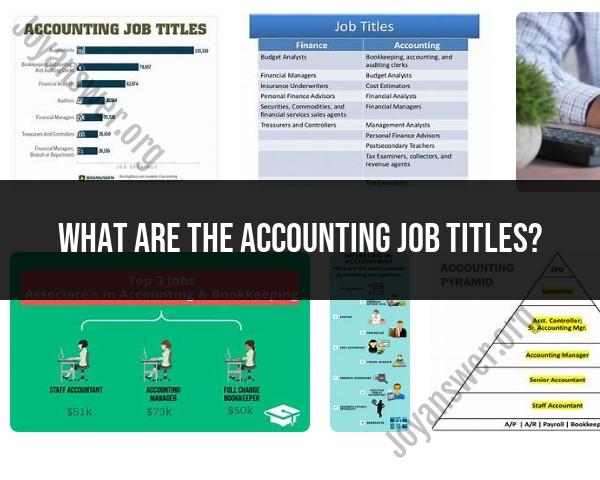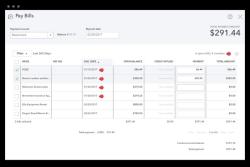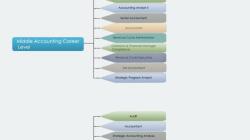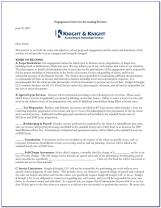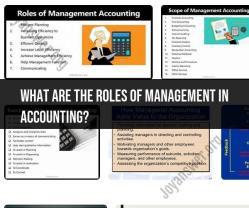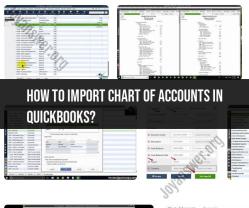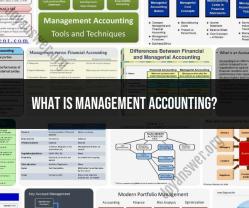What are the accounting job titles?
The field of accounting offers a wide range of job titles, reflecting the diverse roles and responsibilities within the profession. Here are some common accounting job titles, along with brief descriptions of their roles:
Accountant:
- Accountants are responsible for preparing financial records, ensuring accuracy, and complying with relevant laws and regulations. They may work in various industries and specialize in areas such as tax, audit, or management accounting.
Certified Public Accountant (CPA):
- CPAs are licensed accountants who have met specific education and experience requirements, passed the CPA exam, and adhere to professional standards. They often work in public accounting firms, providing services such as auditing, tax planning, and consulting.
Financial Analyst:
- Financial analysts analyze financial data, trends, and performance to provide insights and recommendations for decision-making. They may work in corporate finance, investment banking, or investment management.
Auditor:
- Auditors examine financial statements and internal controls to ensure accuracy, compliance, and transparency. They may work in public accounting firms, internal audit departments, or government agencies.
Bookkeeper:
- Bookkeepers are responsible for recording financial transactions, maintaining ledgers, and reconciling accounts. They play a crucial role in day-to-day financial operations.
Tax Accountant:
- Tax accountants specialize in tax planning, compliance, and reporting. They help individuals and organizations navigate complex tax regulations to minimize liabilities and ensure compliance.
Forensic Accountant:
- Forensic accountants investigate financial discrepancies and fraud. They may work with law enforcement agencies, attorneys, or in corporate settings to uncover financial irregularities.
Cost Accountant:
- Cost accountants analyze and track the costs associated with manufacturing and producing goods or services. They play a key role in cost management and decision-making.
Management Accountant:
- Management accountants, also known as cost, corporate, or private accountants, focus on providing financial information for internal use. They help management make informed business decisions.
Controller:
- Controllers, or financial controllers, oversee an organization's financial reporting, accounting processes, and internal controls. They play a senior leadership role in the finance department.
Internal Auditor:
- Internal auditors evaluate and improve an organization's internal controls, risk management, and governance processes. They work within the organization to ensure compliance with policies and procedures.
Financial Planner:
- Financial planners help individuals and businesses plan for their financial future. They assess financial goals, create strategies, and provide advice on investments, retirement planning, and estate planning.
Payroll Specialist:
- Payroll specialists are responsible for processing payroll, ensuring accurate and timely payment to employees, and complying with tax regulations related to payroll.
Budget Analyst:
- Budget analysts assist organizations in creating, managing, and analyzing budgets. They evaluate financial data to provide recommendations for budgetary decisions.
Credit Analyst:
- Credit analysts assess the creditworthiness of individuals and businesses. They analyze financial data to make recommendations on credit approvals or denials.
These titles represent just a subset of the many roles available in the accounting profession. The specific responsibilities associated with each role can vary based on the industry, organization size, and individual job requirements.
The accounting field encompasses a diverse array of job titles, each with unique responsibilities and contributions to the financial well-being of organizations. Let's explore some of the key accounting job titles and their essential roles:
- Accountant:
Accountants form the backbone of financial management, ensuring the accuracy and completeness of financial records and reports. They play a critical role in maintaining a company's financial health and providing reliable information for decision-making.
Responsibilities of an accountant typically include:
- Recording financial transactions
- Preparing financial statements, such as balance sheets, income statements, and cash flow statements
- Reconciling bank accounts
- Analyzing financial data to identify trends and patterns
- Providing financial advice to management
- Auditor:
Auditors serve as independent watchdogs, conducting thorough reviews of financial statements to ensure their accuracy, fairness, and compliance with accounting standards. They play a crucial role in safeguarding financial integrity and protecting the interests of stakeholders.
Responsibilities of an auditor typically include:
- Planning and conducting audits of financial statements
- Evaluating internal controls and risk management processes
- Testing transactions and balances to verify their accuracy and completeness
- Preparing audit reports and communicating findings to management and stakeholders
- Tax Accountant:
Tax accountants navigate the complexities of tax regulations, ensuring that individuals and businesses comply with tax laws and maximize tax benefits. They possess expertise in tax planning, preparation, and representation.
Responsibilities of a tax accountant typically include:
- Researching and interpreting tax laws and regulations
- Preparing tax returns for individuals and businesses
- Advising clients on tax planning strategies to minimize tax liabilities
- Representing clients before tax authorities in audits and disputes
- Financial Analyst:
Financial analysts interpret financial data, providing insights to guide business decisions. They analyze financial trends, performance metrics, and market conditions to inform strategic planning, investment decisions, and risk management strategies.
Responsibilities of a financial analyst typically include:
- Collecting and analyzing financial data from various sources
- Developing financial models and forecasts
- Identifying and evaluating investment opportunities
- Preparing financial reports and presentations for management and stakeholders
- Providing financial insights to support business decision-making
These are just a few examples of the diverse accounting job titles available. The accounting profession offers a wide range of career paths, catering to individuals with varying interests and skill sets.
